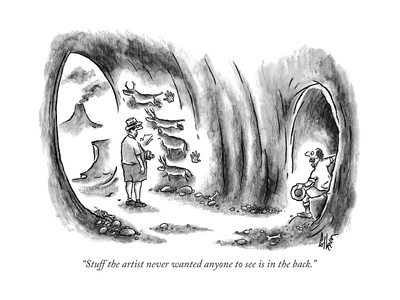
Talent is one of those words that’s thrown around writing circles like a great, mythical, white whale. It’s the commodity that we all revere and can rarely define, yet this doesn’t stop us from seeking and identifying it. It’s hard, in fact, to read the blurb on the back of a celebrated book without running into it, spoken of as if the author herself is almost incidental. Here are a few from my own shelves: “a stunning new talent,” “a talent to watch,” “one of our greatest talents.”
But in all honesty, talent can be one of the biggest obstacles to a sustainable writing practice. It’s right up there with “muse” on my list of the top five worst words we use to talk about writing. Both talent and muse suggest that a writer is a passive vessel at the whim of her gifts. This kind of thinking really gets my panties in a bunch. It’s the kind of thinking that my mother, an extremely talented poet, used to dig her own artistic grave, unable to incorporate the unimpressive production that usually settles in around the daily grind into her need to see her talent show up, virulent and undeniable, whenever she chose to write. It’s the kind of thinking that sets a writer up for agony if she decides to actually make a commitment to her writing, sort of like expecting that your spouse will wake up in perfect makeup every day, smelling like a rose.
And even when it is working for you, talent can quickly become a hook for your ego to hang its hat on when it arrives to manspread on your couch, demanding your attention with its oversized and overblown presence. You’ll just begin to peer down the tunnel of something interesting and unexplored when it starts barking at you to put something down and get it a beer already. Talent can also become a convenient place to hide, a way to avoid the tougher realities of writing. It’s very tempting to sit back and daydream about that one time you won an award in kindergarten for best haiku, or last year at the Oscars for best screenplay. Again, it’s a relationship killer, artistically speaking. If you’re always waiting around for that perfect, astonishing line to appear, you’re going to spend a lot of time feeling abandoned and alone.
So how do we shed the notion of being slaves to our talent and get it to work for us? Well, first of all, I think we need to gently but firmly wrestle it off its pedestal. Tenacity, a sense of humor, and an unflinching tolerance for compassionate truth will take you ten times further than talent can, even on a good hair day. Second, I think we need to blow open the writing conversation. Writers need to start telling their stories. Not the ones you see in blurbs or pithy magazine articles. The true stories. We need to talk about our foibles and busts, the ninety-nine drafts that preceded the hundredth, the misdirection and missteps, the mundane realities and nagging insecurities that even the most glamorous of artists contend with. We must talk about how ugly the rocks look before we polish them, and how often the polisher malfunctions. We must, in other words, publicly recognize the importance and beauty of the real writing life, not the way we like to paint it.
I had lunch the other day with a newly bestselling author, one I’ve known for years but haven’t seen for a long time. In reading about her success online, I forgot what it was like to be with her in person. Everything that’s written about her is true: that she’s hugely talented, and that her work is gorgeous. But it wasn’t until I saw her that I remembered why I love her and how she inspires me: she’s real, kind, funny, one of the hardest workers I know, and the first person to welcome an honest conversation about writing. Being with her reminded me of how easy it is to slip into the trap of thinking that everything we read about a writer – or writers – is everything we need to know about them. But really, we’re only seeing them with their makeup on. And for many of us, the real and lasting beauty is the one we can relate to, the one we can see and celebrate in our own mirrors.
Great advice .Thank you for sharing !
An inspiring read. I needed to read this.